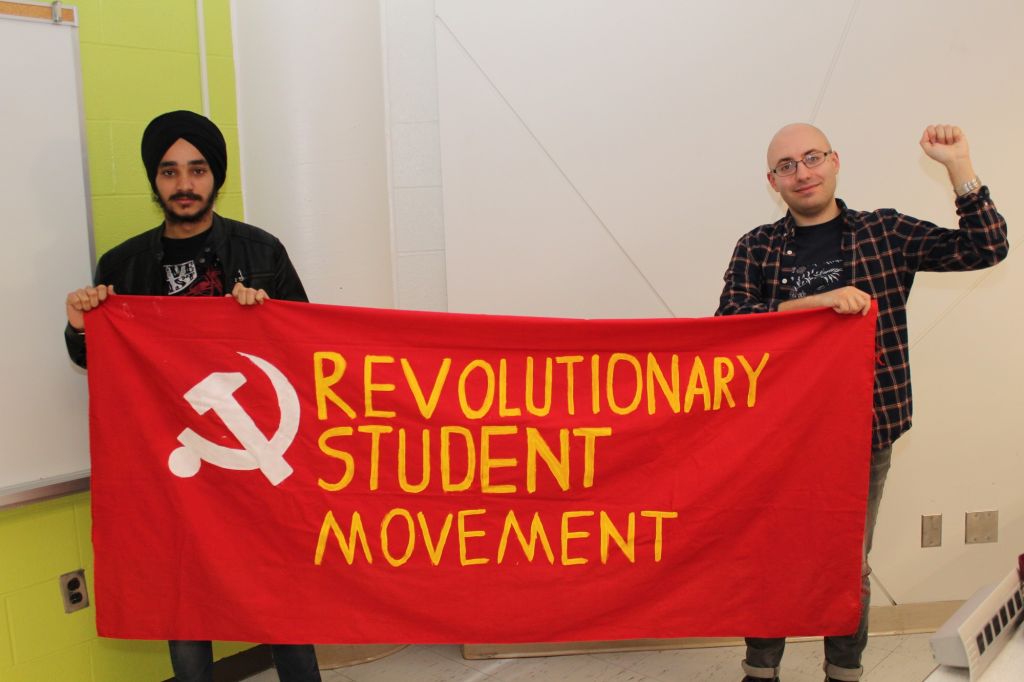Anti-capitalist, anti-colonial, anti-racist — and for the students.
That’s what drives the Algonquin College Revolutionary Student Movement, a pan-Canadian group sprouting from uOttawa that fights for political power among students on their campuses.
Building off Marxist philosophy, the chapter at Algonquin “strives to promote interests of working class students and align our struggles with people who face various kinds of oppression in our society,” explained RSM spokesperson Dimka Melnik, a second-year medical office administration student.
Grassroots movements for positive change is a main goal for RSM at Algonquin. As well, the group participates in various social justice events and demonstrations on campus and around the city.
Its current campaign is to turn the SA into a more democratic body via student involvement with petitions and student votes such as the U-Pass. Fall reading week is another vote they hope to see students have a say in.
A petition with enough signatures presented to the SA should incite a student vote, but that is not the case at Algonquin.
“This exists on most campuses across the country, mainly in universities, but it is needed on our campus,” said Melnik.
Melnik conceded there are difficulties to this, as most students are at a university for four or more years, while college programs run much shorter. That makes it hard to establish a community and attract committed members.
Solidarity is a cherished value for RSM, from minorities to indigenous communities, looking for equal rights among all, but resisting the urge to attack those who hold conflicting beliefs.
“Our organization does not target people who are in complete disagreement with us.”
The group is now concerned about the recent spikes in displays of Islamophobic behaviour seen south of the border and in Canada.
“Canada is not immune from extreme hate.”
It is easy to disregard this hate as a result of Trump, but it stems from homegrown sources as well.
Despite being a student group, RSM does not pigeonhole themselves and looks to improve conditions of support workers and TAs at the campus. Bargaining rights are limited for these workers, who might not be seeing wages increase along with the cost of living.
The group has held its last meeting for the semester, but will continue meeting every Thursday starting in the fall semester.


